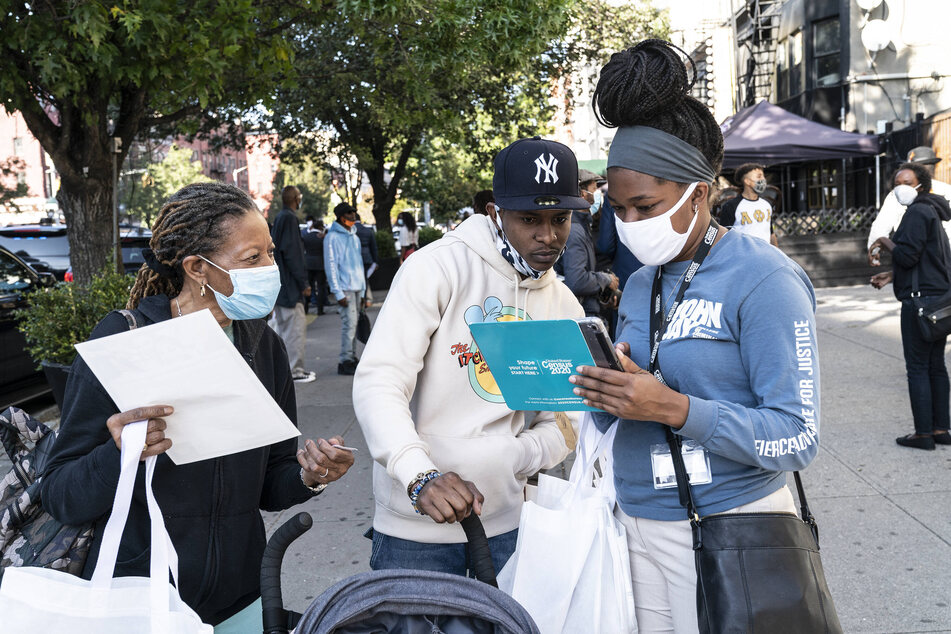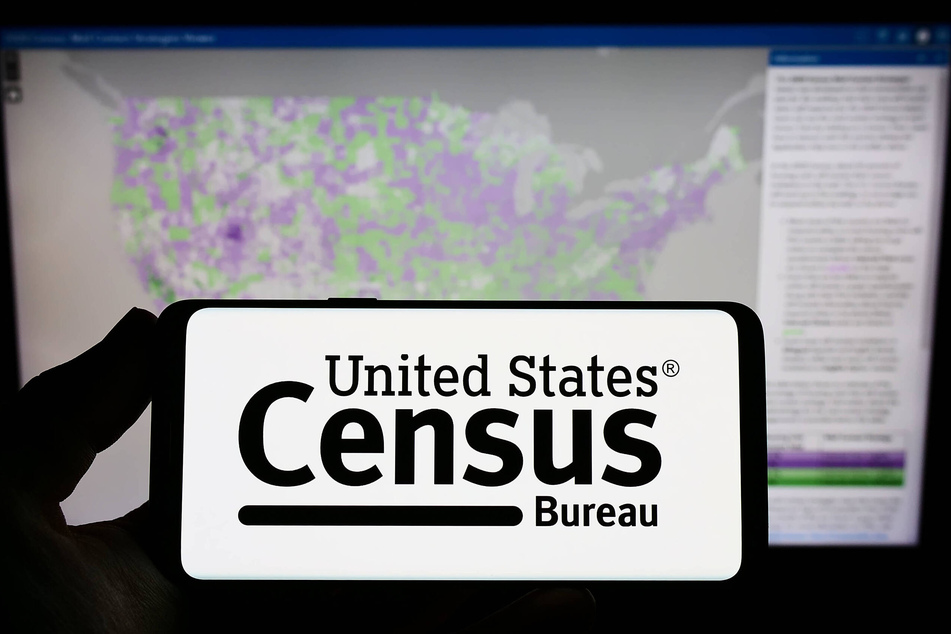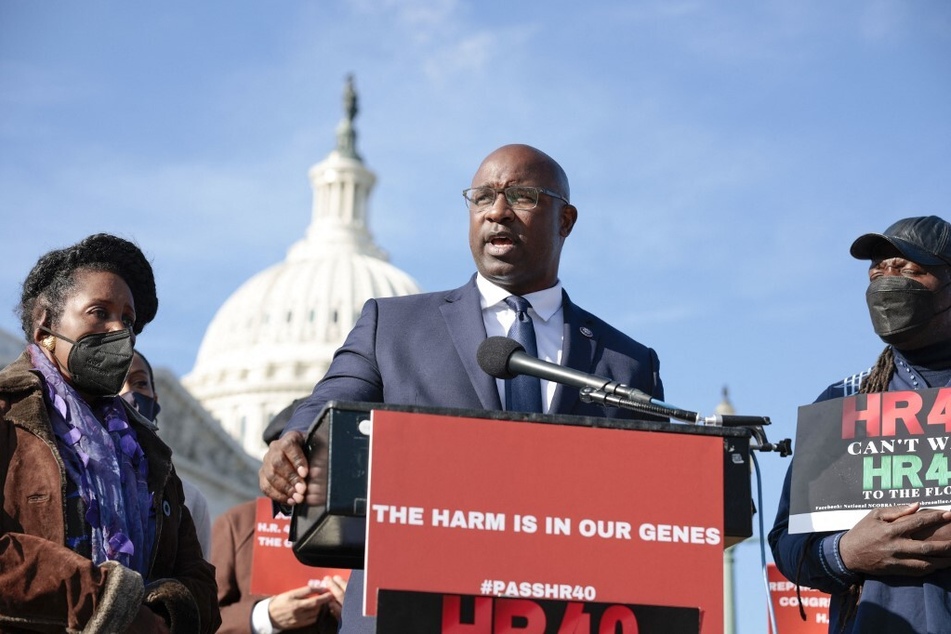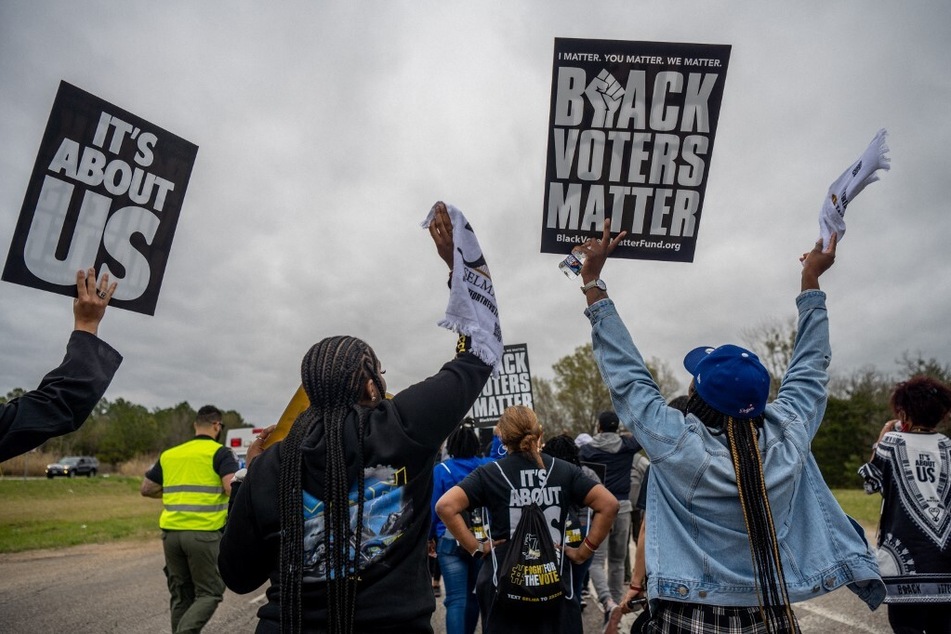Census may ask Black Americans if they descend from enslaved people – here's what that could mean
Washington DC - The US government is considering altering the descriptors for Black people in the national Census, which could have wide-ranging impacts on funding for social programs, political representation, and reparations. TAG24 sat down with author and advocate Jessica Ann Mitchell Aiwuyor to find out what you should know about the proposed changes.

The US Office of Management and Budget (OMB) is currently mulling a proposal to alter its Race and Ethnicity Statistical Standards to add a designation referring to "Descendants of Slavery." The suggested new descriptor is under consideration as an ethnicity subcategory under the current "Black or African American" category.
The proposed changes appear to stem from a desire to distinguish Black people who descend from those enslaved in the US from Black communities with more recent immigration histories, who may see marked differences in terms of average wealth and socioeconomic status.
Opponents of the changes have pointed out that the Census already gives respondents the ability to specify their national origin and ethnicity under the category "Black or African American." There is also a write-in option that allows people to identify as an "American Descendant of Slavery," "American Freedman," "Foundational Black American," or any of the other designations currently under consideration by the OMB.
Far more concerning than some groups' perceived need to disaggregate Black communities is the potential implementation of Census changes without majority Black support or substantive research on the likely impact, supporters of the existing format say.
"It's not an issue of being for or against descendant communities because the majority of us in this conversation are descendants," explained Jessica Ann Mitchell Aiwuyor, founder of the National Black Cultural Information (NBCI) Trust. "All of us have our own perspectives on these different names, so then to try to push this into federal definition of over 40 million people when these types of descriptions and names really have to have – and this is according to the OMB – broad acceptance... those terms are not broadly accepted."
On top of questions around reach, Aiwuyor warned that any big shift in how federal data is collected could result in an undercount of Black Americans in the coming Census. But what does that mean concretely for Black communities?
What could the Census changes mean for political representation and social programs?

The US Census takes place every 10 years and is used to determine how federal funds will be allocated for public services, including hospitals, schools, road repairs, and housing assistance programs, for the following decade.
The numbers also have enormous implications for Black political representation, as the Census results are used to determine how many US House districts a state will get and how legislative and congressional maps are drawn for the next 10 years.
Data suggest that Black Americans are already undercounted in current Census tabulations. Significantly changing ethnicity categories to include unfamiliar labels could create confusion among Black Americans and make the problem even worse.
"What we don't want is a situation where we're removing and replacing names that are broadly accepted, we're confusing members of our community, we're splintering off members of our community, we're getting an undercount, and we're losing potentially trillions of dollars in funding and resources. I'm talking about health care, education, and also political representation," Aiwuyor noted.
Given the current attacks on Black American ballot access and the US' legacy of divestment from Black communities, advocates argue that Black Americans can hardly afford any further measures that may strip them of essential resources and voting power.
What about reparations?

Some of the proponents of the Census changes argue that the distinction could facilitate the establishment of a federal reparations program for Black Americans, and even set the stage to limit eligibility to only those who descend from people enslaved in the US.
The proposed changes echo a precedent set in California, where Governor Gavin Newsom signed a bill into law that would add a separate category for descendants of enslaved people in employment data collection. The decision followed a controversial move by the state's Reparations Task Force to limit eligibility to people who descend from those enslaved in the US and from free Black people living in the US before the 20th century.
However, Aiwuyor and others have pointed out that the governing principles of the OMB's Interagency Technical Working Group on Race and Ethnicity Standards explicitly state that the body's standards cannot be used to determine eligibility for participation in federal programs.
"Though we all are pushing for HR 40, we don't have a federal reparations program right now, and even if we did, this would not be used for eligibility for that program," Aiwuyor confirmed.
"That federal program would decide how they would determine eligibility," she added.
Proposed Census changes described as "insulting" and "dehumanizing"

Apart from the concrete impacts the proposed Census changes could have for Black communities, Aiwuyor argues that the descriptor may be perceived as offensive to many Black Americans.
"Slavery itself is not an ethnicity, and to use that as an official federal ethnic description for Black Americans is not only insulting but dehumanizing. Slavery was a condition that was put onto our ancestors that they fought against. It is not who they were. It is a system that they defied," Aiwuyor insisted. "We do not want to continue the dehumanization of our ancestors in ourselves."
The term "American Descendants of Slavery" is also misleading as a means of designating national belonging, Aiwuyor notes. There are descendants of people enslaved in the US who are nationals of countries throughout the Caribbean, Latin America, and the African continent.
To avoid confusing and possibly insulting Black people, racial justice organizations like NBCI Trust and the Truth Telling Project are advocating for the US government to continue using the "Black or African American" category, while still including the write-in option that allows people to identify how they choose.
Aiwuyor is also calling for the OMB to do an independent national telephone survey to better understand Black Americans' preferences for self-identification. Meanwhile, NBCI Trust is engaging in educational outreach to empower Black Americans to share their views on the changes with the OMB in public comment.
"We want to make sure this is a balanced discussion, and so far, it has just not been balanced," Aiwuyor said. "Over 40 million people, the vast majority, don't even realize this process is going on and haven't been able to have a voice."
The OMB public comment period is open through April 27. Individuals and organizations can weigh in on the proposed changes on the Federal Register website or at Regulations.gov, with instructions and sample content available online via NBCI Trust.
Cover photo: IMAGO / Pacific Press Agency

